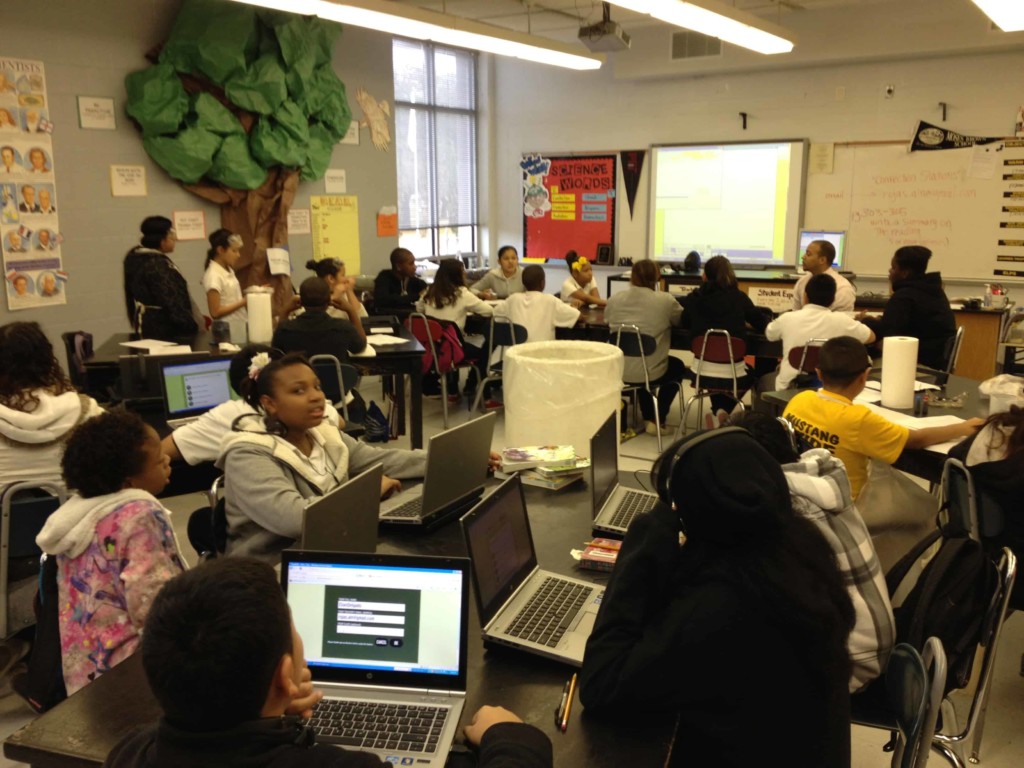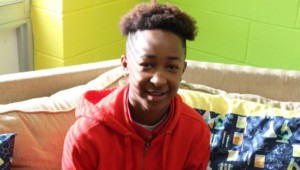Houston: As Good as it Gets

“Houston, unlike other cities, is insanely entrepreneurial and optimistic. It incubates the hell out of new ideas,” said nonprofit leader Rhetta Detrich. She would know; she helped build Education Pioneers’ national network. Lacking the provinciality of East Coast cities, “Houston exists because it was founded on the premise of outsiders bringing good ideas and industry.” The fifth largest metropolitan area in the country is a giant sprawl. Its haphazard development makes the case for zoning laws. Home to energy, aerospace, and manufacturing companies, only New York City is home to more Fortune 500 headquarters.
Regional demographics are changing fast. In the next 20 years, the Hispanic college-age population will grow by 70 percent and make up the majority (55 percent) of the 18-24 year old population. Educate Texas says that metro Houston “has a cohesive sense of regional identity, a high level of philanthropic activity and support, numerous innovative pilot programs showing promising results, large college systems that can help support smaller regional institutions, and growing coordination among K-12 and post-secondary institutions.”
Suburban Houston includes big diverse districts recognized for their achievement including Aldine ISD, the 2009 Broad Prize winner. Katy and Klein are also recognized as tech savvy districts. Katy ISD was an early adopter of social learning platform Edmodo. Klein ISD put in place a tablet PC program for the 2012-2013 school year.
Backstory. After a distinguished career in the military and higher education, Dr. Rod Paige served five years on the Houston school board before becoming superintendent in 1994. Dr. Paige focused the systems on key outcomes, decentralized budgets and decision making, and introduced new options including charter schools and a program that became the KIPP network. After completing a two-year Teach for America (TFA) commitment, Dave Levin and Mike Feinberg launched a program for fifth graders. (KIPP recently won the Broad Prize for Public Charter Schools.)
Like similar efforts with high profile leaders — Seattle and New York — the accountability and autonomy agenda in Houston boosted achievement levels, laid the groundwork for the portfolio strategy deployed in many urban districts today, but fell short of transformation. These early decentralization efforts overestimated school-based capacity and the resilience of the secondary school model. Dr. Paige went on to serve as Secretary of Education for President George W. Bush from 2001 to 2005.
The Texas High School Project, now Educate Texas, was launched in 2004 and resulted in 10 Early College High Schools and nine T-STEM schools in metro Houston (135 statewide).
Though Texas has previously lagged behind other states in its online learning program offerings, they have taken steps to improve. The state agency provides online learning opportunities to students across the state through the TxVSN statewide course catalog using a network approach. Still, the tortured process has resulted in few full and part time online opportunities and tiny enrollments compared to other states. Houston ISD sponsors the Texas Connections Academy @ Houston, a statewide virtual school for grades 3-8, and an in-district virtual high school.
Improving HISD. In 2010, Houston Independent School District (HISD) Superintendent Terry Grier called Harvard’s Roland Fryer who had just published a report outlining the five factors that contribute the most to the success of high performing school networks. These factors became the backbone of the Houston turnaround effort called Apollo 20:
- Focus on human capital
- Culture of high expectations
- Use data to improve instruction and provide teacher feedback
- Extended time on task, and
- High dosage tutoring.
A few school visits and a first year review of the data suggests that Apollo has taken off, “the average impact of these changes on student achievement is 0.277 standard deviations in math and 0.061 standard deviations in reading, which is strikingly similar to reported impacts of attending the Harlem Children’s Zone and Knowledge is Power Program schools.” The turnaround strategy started with hiring great principals. Apollo principals then replaced between 30 to 80 percent of the staff. HISD raised $17 million to support the 20 Apollo schools, which is about $1,800 per student. 2012-2013 was the last year of the grant.
HISD has been courageous about matching the best teachers with student most in need. Principals in Houston receive extensive training in teacher evaluation. With three members of the central office team, Principals participate in a Staff Review of each evaluation — including academic results — for every teacher and are required to place their teachers in one of four categories ranging from high to low. Principal evaluations hold accountability for retaining top teachers and exiting low performers.
“We know that our 21st century campuses are only as good as the principals who lead them and the teachers who create magic in each classroom, said Grier. “For that reason, we’ve enacted bold initiatives to hire – and hold onto – the most effective educators possible.
Initially it was difficult to attract great teachers to previously failing and sometimes dangerous schools. Grier and his team turned that around with the largest Teach for America partnership in the country by offering big signing bonuses and by marketing the opportunity. They made visible changes at each school and invited candidate teachers to visit and talk to students who could attest to the turnaround underway.
Sharpstown High School is safe and orderly, a big improvement over four years ago. A boost in math scores is due in large part to the one-on-two tutoring for students struggling in math. Tutors, called Math Fellows, are paid a $20,000 base with the potential for a $5,000 bonus. In addition to new or retired teachers, professionals have been attracted to the tagline, “Give a year, change a life.” A sophomore said, “It’s not that I learn more with the tutor than I do in class; it’s that he helps me understand the math.”
Tutoring low performing students is a great idea. That’s why it ended up as a step in NCLB. Tutoring appears to work particularly well if it is fully integrated with classroom instruction, but it will be expensive to continue post-grant. The good news is that adaptive and personalized tutoring math software is making it easier to blend small group instruction with online learning.
School visits last year gave me the overwhelming sense that despite big investments in the previous 36 months, the sector is more than five years behind in the development of basic tools, including simple translations of tools widely used in other sectors.
Fondren Middle School has a clean, pleasant environment. Like Sharpston, attention to building and grounds paid off in contributing to a serious academic atmosphere. As a new principal, Charles Foust found education malpractice widespread in December of 2010, “As principal, you do what needs to be done.” He replaced 35 teachers.
Science classes incorporated blended learning strategies with students rotating from BrainPop on laptops, to hands-on experiments, and to a teacher led discussion at a smart board (featured image). With little prompting, students launched into KIPP-like chants about their academic expectations. College banners hang everywhere, another trick borrowed from charters.
Learning objectives and assignments were clearly identified in every classroom. Paired reading in social studies resulted in shared comments in preparation for a Civil War essay. Common classroom management strategies were evident school wide.
Robinson School of Global Studies is “an amazing school,” in the words of Seth Andrew, Democracy Prep, and a critical classroom observer. Common literacy strategies were evident across the elementary school. It’s hard to believe this positive and cheery place was among the worst of the 170 elementary schools in Houston a few years ago.
Bilingual classrooms appeared to be driven by confused state bilingual laws and related local politics. Spanish speaking students learn and are tested in Spanish until fourth grade and then dumped into mainstream classrooms.
EdLabs is an interesting combination of instigator, technical assistance provider, and evaluator. Rowland Fryer’s center at Harvard is a hands-on, learn by testing, make-a-difference kind of shop. Fryer and team have been in Houston dozens of times over the last few years. Fryer is intrigued by the potential of working at scale, “In our second year in Houston, we were working with 20,000 kids–about half the number of the kids in the whole KIPP network.”
You don’t really expect a tenured Harvard economist to muck around in schools at this level of detail with an interest “in taking instruction from good to great.” It’s obvious that Fryer appreciates Grier’s willingness to do whatever it takes to boost achievement. Fryer’s shop was launched with a big grant from Eli Broad.
Houston gained national notoriety in the late 90s under Rod Paige’s empowerment and accountability agenda as Houston superintendent. The improvement agenda co-crafted by Fryer and Grier suggests that Paige was right about empowered leadership but that a big portfolio like Houston warrants powerful improvement capacity like Apollo schools.
Houston won the 2013 Broad Prize, a recognition for the large urban school district that has made the greatest improvement in student achievement in recent years.
Digital conversion. In 2013 HISD launched a high school 1:1 program. “This is a way of transforming what and how we teach,” Grier told the school board.
Through the expanded PowerUp initiative, HISD plans to “get technology in the hands of 200,000+ students” in 282 schools. Following a six-month research and collaborative period, the initial goal to use technology to transform the nature of learning and instruction is now on the verge of widespread adoption. A recent profile said, “HISD’s approach combined thoughtful goal setting, thorough planning and robust support. Their process demonstrates the importance of starting with learning goals and keeping them at the center of key implementation decisions around procurement.”
Full court press. Houston has some of the best charters schools in the country. YES Prep, the inaugural winner of the Broad Prize for Charters, has 11 schools. KIPP, winner of the 2014 Broad Prize for charters has 21 schools serving 9,000 students. The innovation they pioneered was universal college access–both networks routinely propel 100 percent of students to college.
In 2009, the Gates Foundation provided a $30 million credit facility to support $300 million of KIPP facilities development. The Fisher Fund and the Walton Family Foundation have been significant donors to KIPP and YES in Houston.
As reported December 2012, the Houston Independent School District applied lessons from high performing charters when it launched Apollo 20, an ambitious turnaround program.
In the same year, Houston ISD passed a $1.9 billion bond to build or renovate 40 schools, a giant opportunity to develop next gen schools combining lessons from Apollo with emerging blended learning models.
Impact partnerships. Based on data about what drives college success among low-income students, YES Prep developed the IMPACT partnership. This innovative program works with colleges and universities who agree to take a ‘cohort’ of YES students. College persistence rates in these schools is over 90 percent compared to less than 20 percent persistence rates for first-generation students who matriculate.
The SKY Compact is a Gates Foundation-funded three-way collaboration between Spring Branch ISD, KIPP and Yes Prep to double college completion.
The leaders that built the SKY Compact were alumni of the Rice University Education Entrepreneurship Program. Founded in 2008, REEP is housed at the Jones Graduate School of Business, a recognized leader in entrepreneurship. Led by Andrea Hodge, REEP is working with over 230 educators from 18 districts and 3 charters. Hodge build diverse and talented cohorts that spend a year studying together and learning from the best in the field.
Since its 2010 Texas launch, Houston has served as the home base and largest site for Education Pioneers’ growth across Texas. With 90+ fellows placed in Houston as of 2013, an additional 20+ fellows expected each summer going forward and a burgeoning alumni base moving to the Houston area, our impact continues to deepen across a variety of organizations across the education sector in this diverse, growing city.
Another unique program in Houston is A+ Unlimited Potential (A+UP), a small highly personalized middle school that is tuition-free and meets in Houston’s Museum District. At A+UP Learning Coaches guide students through a personalized design technology-rich curriculum and meet onsite in a handful of learning institutions including the Museum of Fine Arts and Holocaust Museum. Last year the school went paperless using Edmodo as an online classroom. The program is a project of the Houston A+ Challenge, which seeks to be a “catalyst for change and a model for innovation in education in the Houston area and beyond”. Each year A+ coaches provide training and tools for hundreds of teachers and school leaders in both traditional and charter schools across the Greater Houston area and focus on linking communities and the public into their work through speaker series and resources.
One Goal, a Chicago nonprofit, identifies, trains and supports the nation’s most effective teachers to lead underperforming high school students to reach their full potential and graduate from college. OneGoal selected Houston as the first of several national expansion regions and has established partnerships, which launched Fall 2012, with six Houston high schools.
Houston libraries are boosting access to WiFi and job training through a Digital Inclusion Initiative. “As the fastest growing US city, Houstonians are served well with an initiative that is designed to improve the employability and economic opportunity of Houston’s underserved, unskilled, and unemployed through access to broadband Internet and skills training and certifications necessary to earn higher levels of earnings and create economic opportunity for themselves,” said Nicole Robinson.
Impact organizations. Reasoning Mind is an adaptive middle grade math program run by a father and son team with a broad base of support including the Hoglund Foundation. Eight Houston schools increased math proficiency by using visual game-based ST Math from MIND Research Institute.
Genesys Works changes the life trajectory of underprivileged high school students by enabling them to work in meaningful internships, at major corporations, during their senior year in high school.
STEMscopes is a K-12 comprehensive online science curriculum program that provides hands-on inquiry activities, assessments, problem-based-learning, intervention tools, acceleration materials, and teacher support resources.
The Woods Project develops leadership skills in low income youth through a series of outdoor education programs at wilderness sites across the country.
Over the last ten years, the Center for Reform of School Systems has trained over 100 school boards across the country. They are partnering with the Alaska Association of School Boards to create an online version to be launched in the spring.
Connexions from Rice University is a leading source of post secondary open education resources.
The Houston Urban Debate League provides 1000 Houston middle school students opportunities to participate in debate tournaments, educational seminars, and summer institutes.
As good as it gets. Houston is a big complicated place with one of America’s best urban school districts, high performing suburban districts, and a lot of great charter schools. Improvements in traditional and charter schools have largely been made without the benefit of new technology districts and networks are rapidly adopting new tools and blended strategies. Houston ISD participates in the League of Innovative Schools, a promising effort to sponsor and share innovations in learning.
For an entrepreneurial place with a big corporate presence, there’s limited venture and angel investment and few EdTech startups. The city could benefit from an incubator like 4.0 Schools to fuel an innovation mindset and development of next gen environments. Despite the gaps, when it comes to urban American education, Houston is as good as it gets.
See Terry Grier’s post on the talent pipeline
MIND Research Institute is a Getting Smart advocacy partner. Edmodo is a portfolio company of Learn Capital where Tom Vander Ark is a partner.








0 Comments
Leave a Comment
Your email address will not be published. All fields are required.